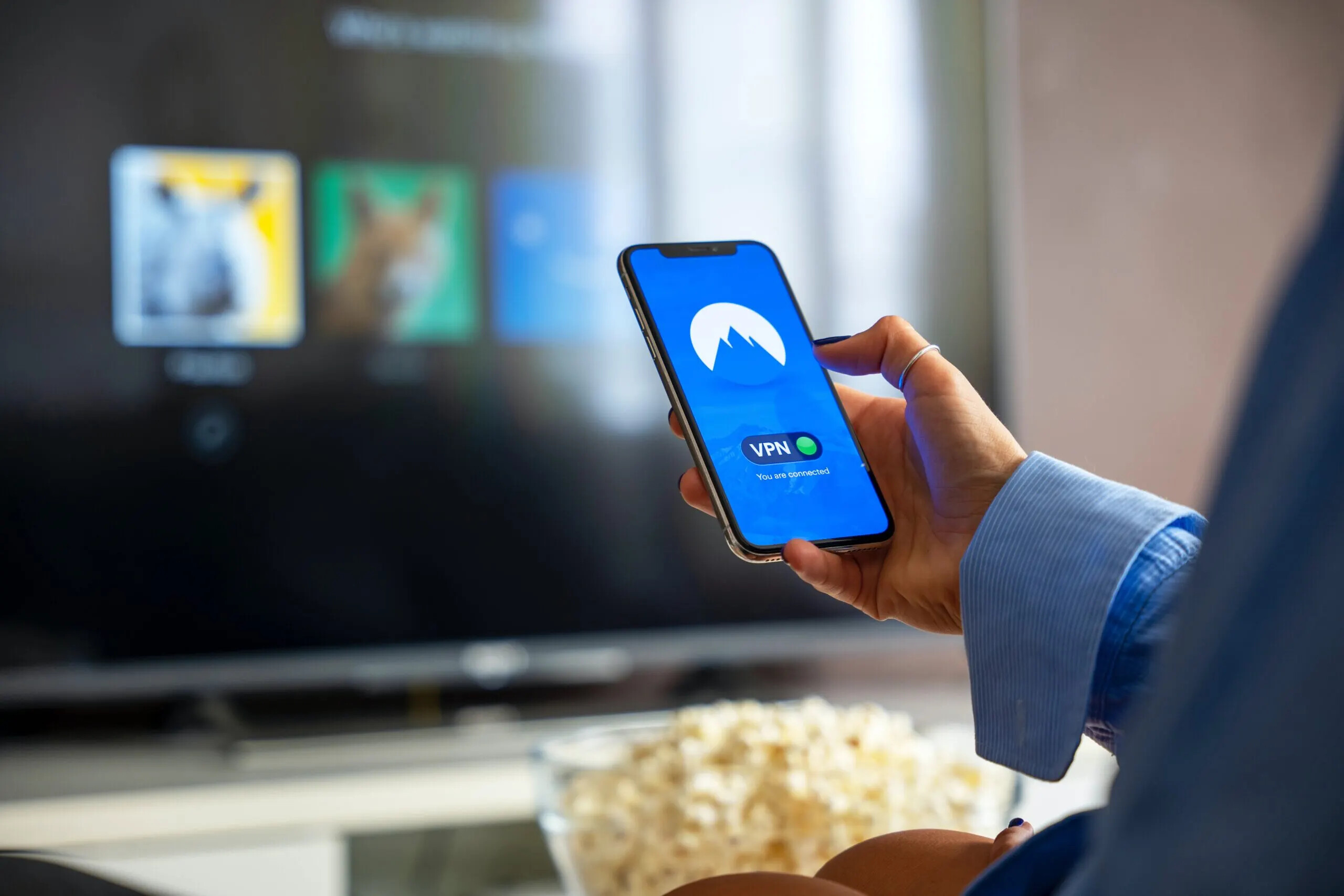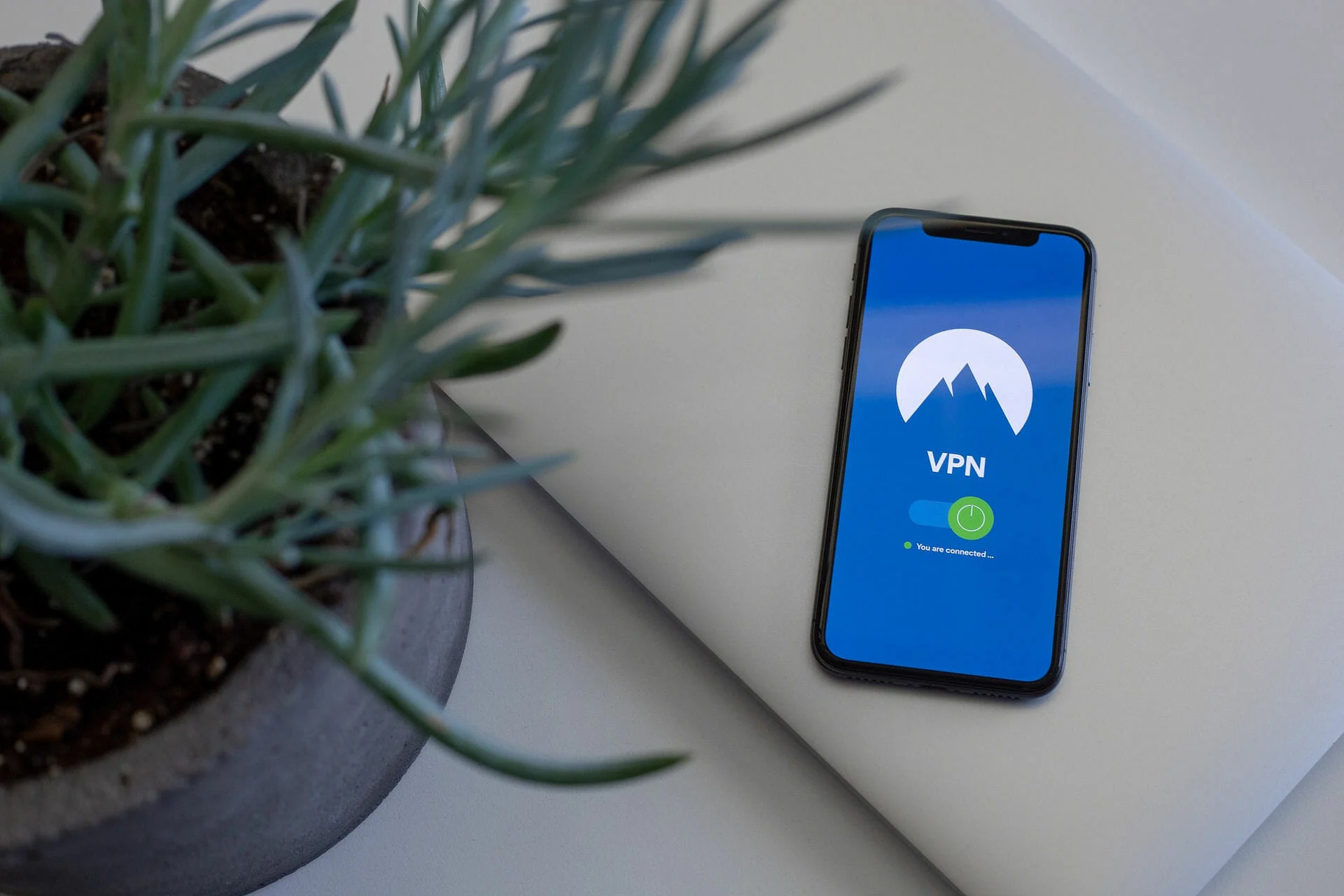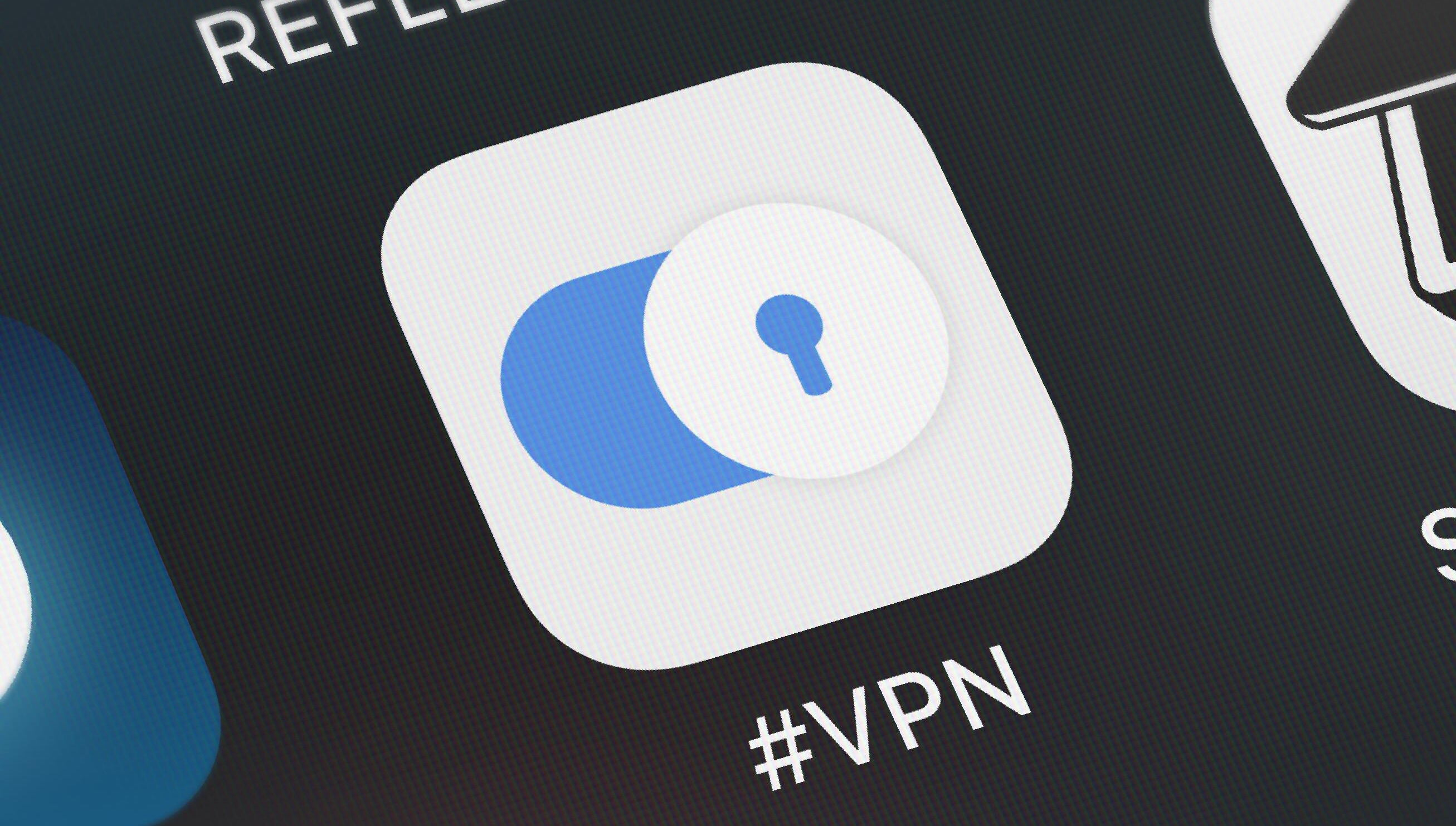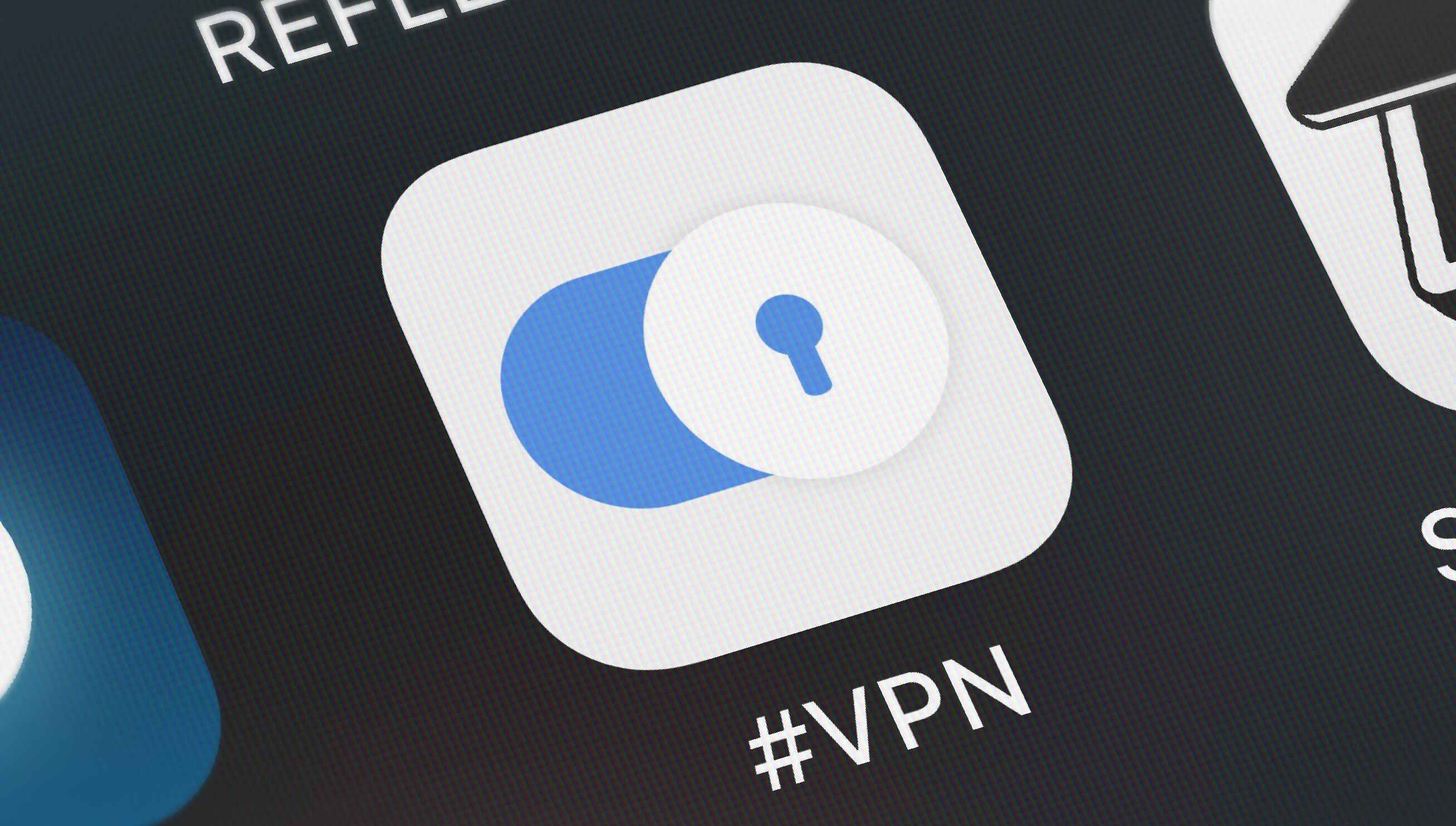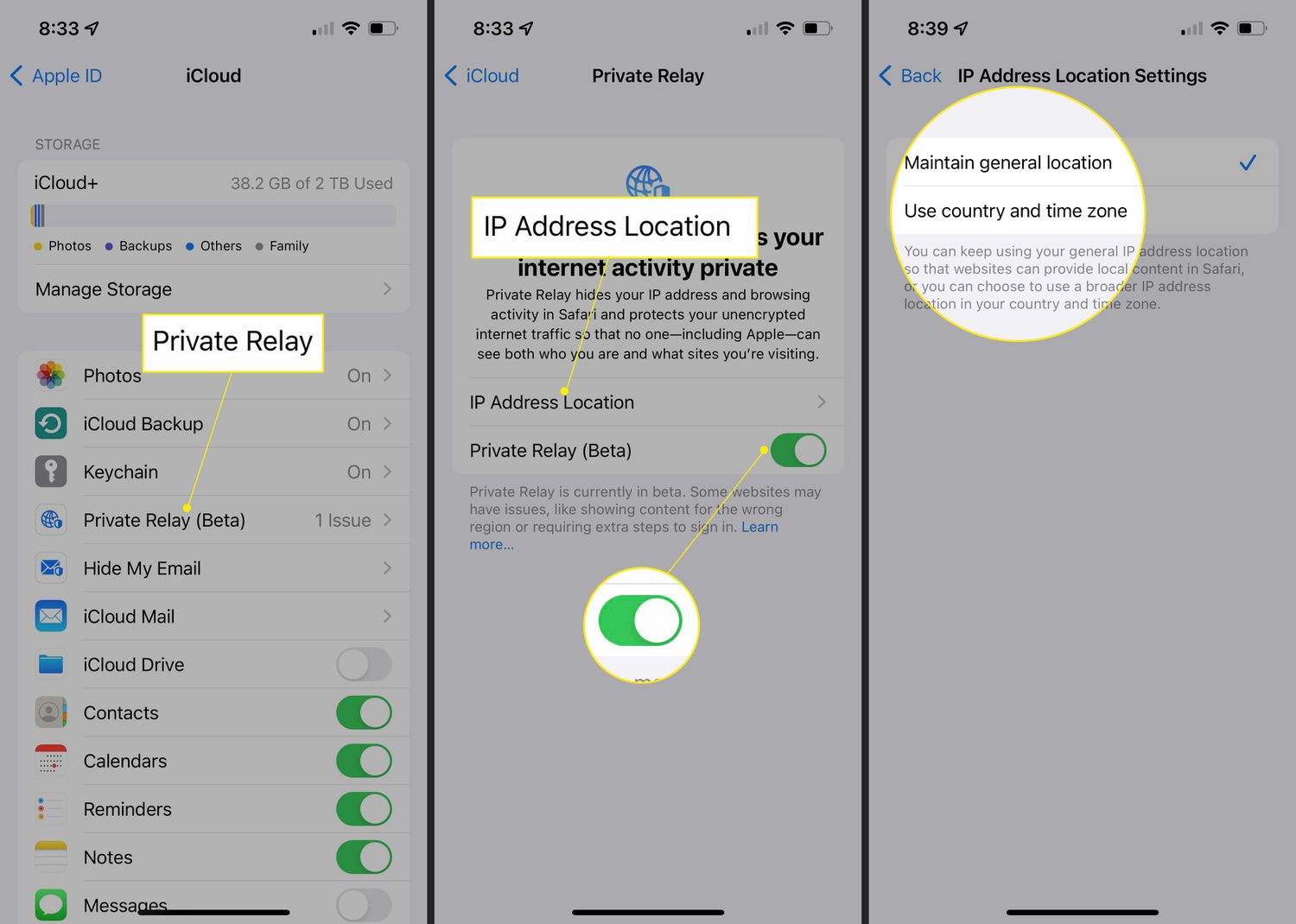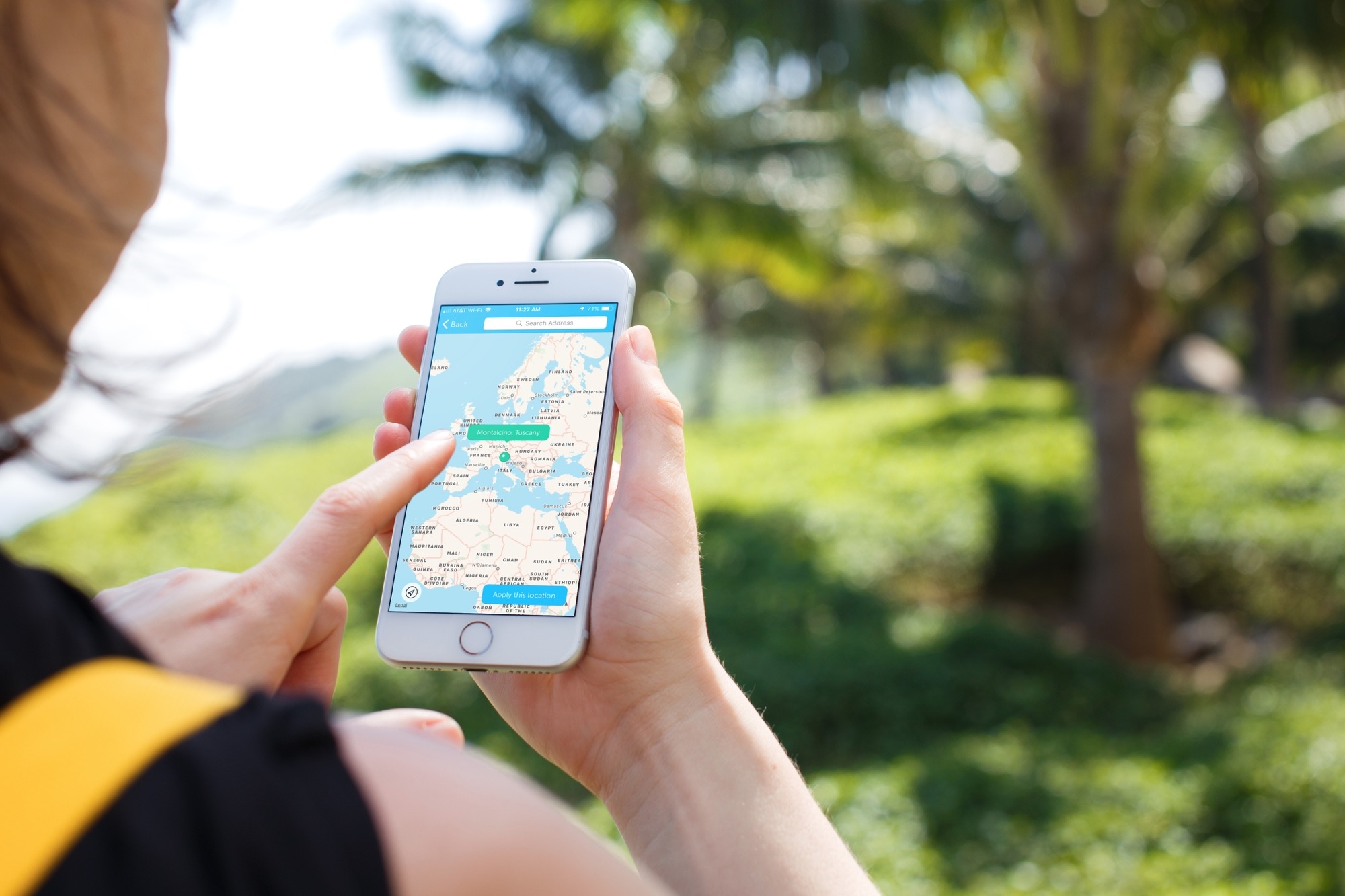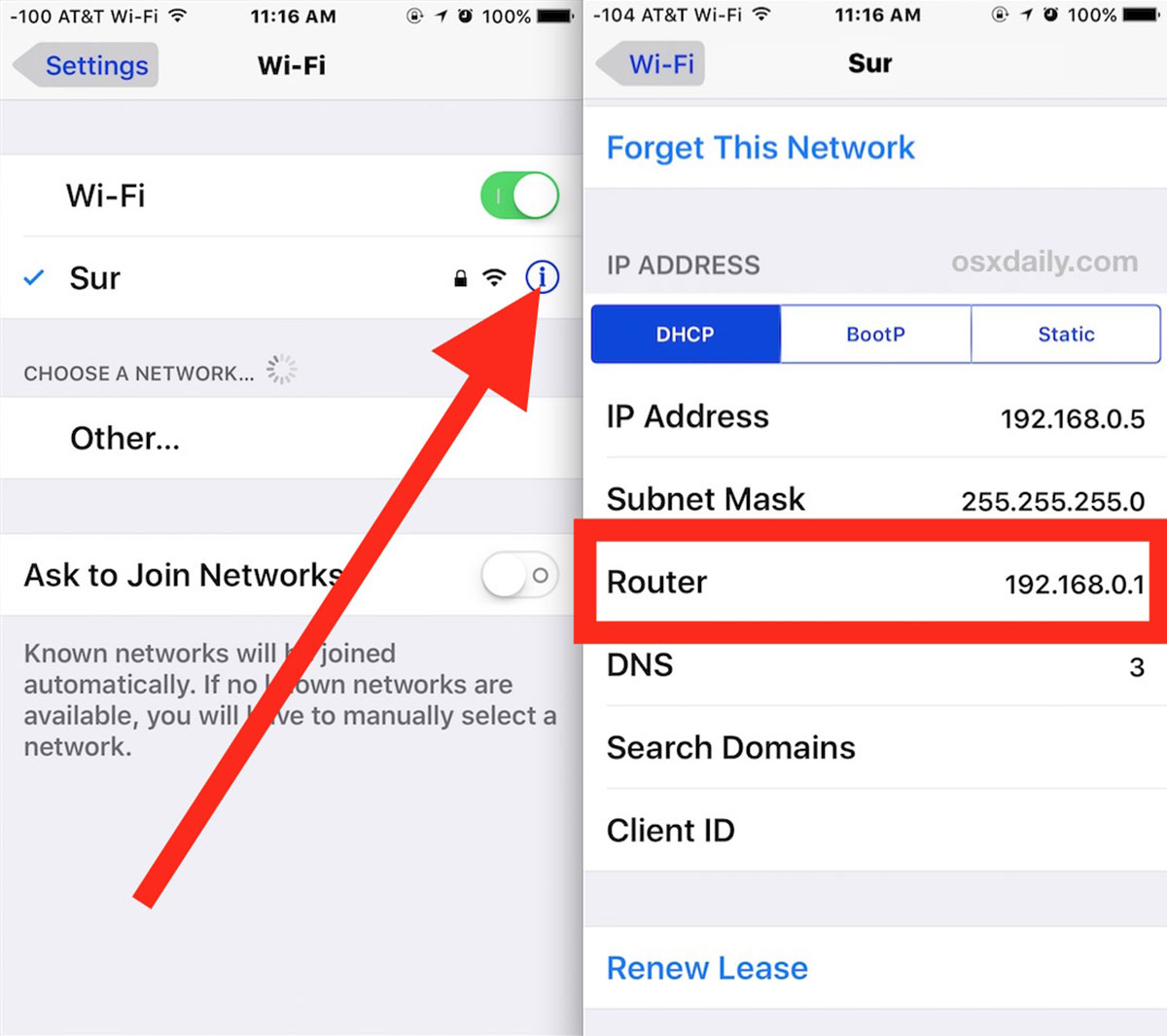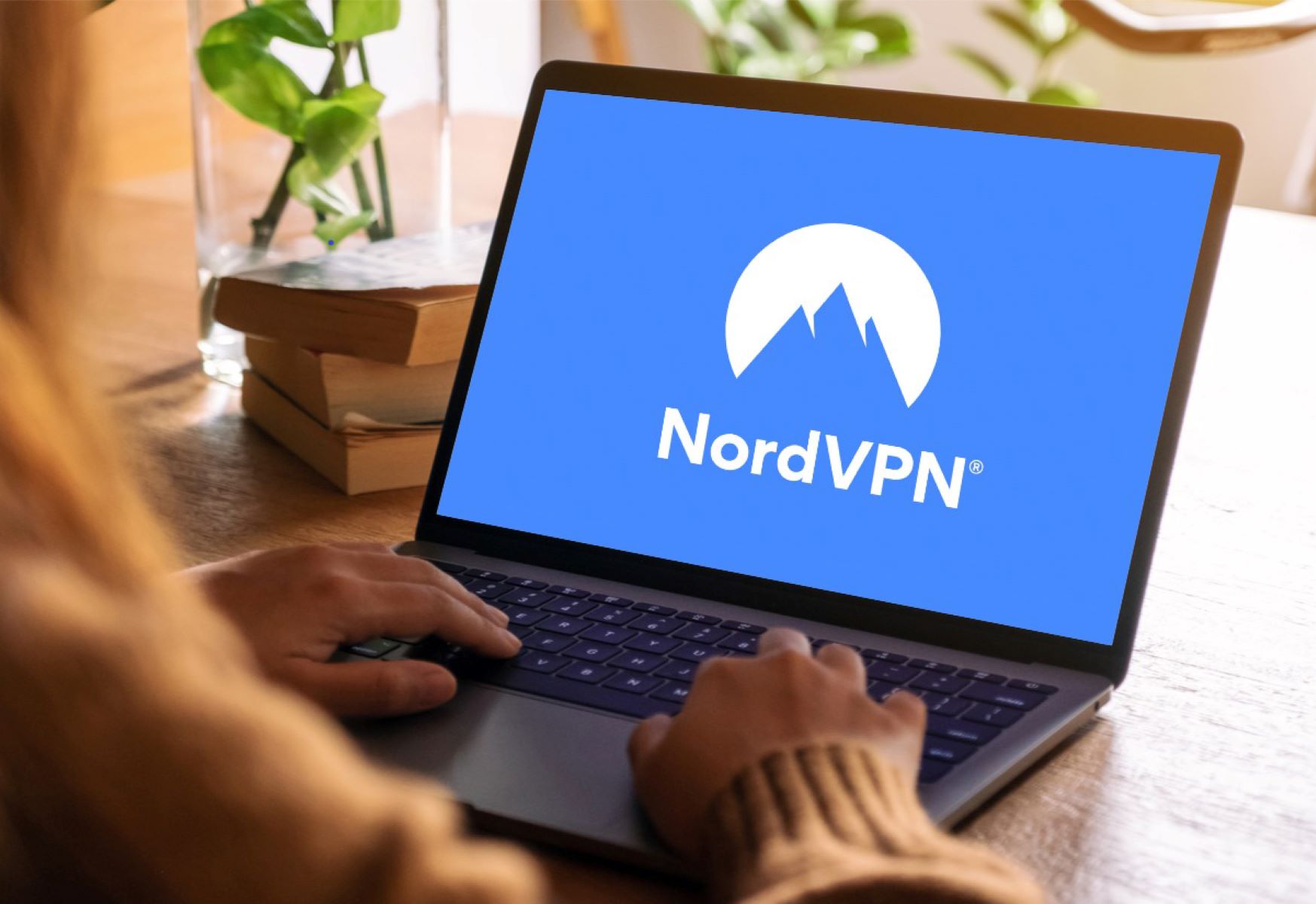Introduction
In today’s interconnected world, where our smartphones have become an extension of ourselves, it is crucial to prioritize our online security and privacy. With the increasing prevalence of cyber threats and data breaches, protecting our personal information has never been more important. One effective way to safeguard your online activities is by using a Virtual Private Network (VPN) on your phone.
A VPN is a powerful tool that allows you to create a secure and encrypted connection between your device and the internet. It acts as a protective shield, preventing third parties from accessing your sensitive data and online activities. Whether you are browsing the web, using public Wi-Fi networks, or accessing geo-restricted content, a VPN on your phone can offer numerous benefits and peace of mind.
In this article, we will delve into the world of VPNs and explain why you need one on your phone. We will also explore the various advantages of using a VPN, how it works on your phone, and provide step-by-step guidance on setting up a VPN. Additionally, we will share some expert tips to make the most out of your VPN experience on your phone.
What is a VPN?
A VPN, which stands for Virtual Private Network, is a technology that creates a secure and encrypted connection over the internet. It establishes a private network connection from your device to a remote server, encrypting all data sent and received. This encryption ensures that your online activities, such as browsing the internet, sending emails, or accessing personal files, remain private and protected from prying eyes.
At its core, a VPN acts as a middleman between your device and the websites or online services you use. When you connect to a VPN server, your internet traffic is routed through that server before reaching its destination. This not only masks your real IP address but also makes it appear as if you are accessing the internet from the location of the VPN server.
In simple terms, a VPN creates a secure tunnel between your device and the internet, providing you with a layer of anonymity and privacy. It encrypts your data, making it unreadable to anyone trying to intercept it, whether it’s hackers, government agencies, or even your internet service provider (ISP).
Furthermore, a VPN can also help you bypass geographical restrictions and access content that may otherwise be unavailable in your current location. By choosing a server in a different country, you can appear as if you are browsing the internet from that location. This can be particularly useful for accessing streaming services, social media platforms, or websites that are restricted in your country.
Overall, a VPN offers a range of benefits for your online security, privacy, and freedom. It allows you to protect your personal information, hide your online activities from prying eyes, and access the internet without restrictions. Now, let’s explore why having a VPN on your phone is essential in today’s digital age.
Why do you need a VPN on your phone?
With smartphones becoming an integral part of our daily lives, our mobile devices hold a wealth of personal and sensitive information. From banking details to social media accounts, our phones store a trove of data that could be compromised if not properly protected. Here are some compelling reasons why you need a VPN on your phone:
1. Enhanced Privacy: When you connect to the internet using a VPN on your phone, your data is encrypted. This means that even if someone were to intercept your internet connection, they would only see encrypted data that is nearly impossible to decipher. This ensures that your online activities remain private and secure.
2. Protection on Public Wi-Fi: Public Wi-Fi networks, such as those found in coffee shops, airports, or hotels, are notoriously insecure. Hackers can easily intercept your data on these networks, potentially gaining access to your personal information. By using a VPN, your connection is encrypted, making it virtually impossible for anyone to snoop on your online activities.
3. Bypass Geographical Restrictions: Many streaming services, websites, and online platforms enforce regional restrictions on their content. With a VPN, you can mask your real location and appear to be browsing from a different country. This allows you to bypass these restrictions and access geo-blocked content, ensuring you never miss out on your favorite shows or movies.
4. Secure Mobile Banking and Online Shopping: When conducting financial transactions on your phone, such as mobile banking or online shopping, it is essential to ensure the security of your personal and financial information. A VPN can add an extra layer of protection, encrypting your data and shielding it from potential hackers.
5. Avoid Government Surveillance: In some countries, the government monitors and restricts internet usage. By using a VPN, you can evade government surveillance and censorship, preserving your online rights and freedom of expression.
6. Prevent Data Throttling: Some ISPs engage in data throttling, intentionally slowing down your internet connection based on your online activities. By using a VPN, your internet traffic is encrypted, making it difficult for ISPs to throttle your connection.
In today’s digital landscape, where cyber threats and online surveillance are prevalent, having a VPN on your phone is no longer a luxury but a necessity. It provides you with the peace of mind that your online activities are private and secure, allowing you to enjoy the internet without restrictions or concerns.
Benefits of using a VPN on your phone
Using a VPN on your phone offers numerous benefits that enhance your online experience and protect your privacy. Let’s explore some of the key advantages of using a VPN on your mobile device:
1. Enhanced Security: One of the primary benefits of using a VPN on your phone is the added layer of security it provides. Your data is encrypted, shielding it from cybercriminals and potential hackers. This is especially crucial when using unsecured public Wi-Fi networks, as a VPN ensures that your sensitive information, such as passwords or banking details, remains secure.
2. Privacy Protection: With a VPN, your online activities are hidden from prying eyes, including your ISP, government agencies, and advertisers. A VPN prevents these entities from tracking your internet usage and collecting data about your online habits. This ensures that your online privacy is protected, allowing you to browse the internet without your activities being monitored.
3. Bypassing Geographical Restrictions: Many websites and streaming services restrict access to certain content based on your location. By using a VPN on your phone, you can mask your IP address and appear as if you are accessing the internet from a different country. This enables you to bypass geo-blocks and access content that may be restricted in your current location.
4. Safe Public Wi-Fi Usage: Public Wi-Fi networks are often unsecured and pose significant risks to your online security. However, with a VPN, all data transmitted between your device and the VPN server is encrypted, making it nearly impossible for anyone to intercept and view your data. This keeps your personal information safe, even when using public Wi-Fi hotspots.
5. Protection against Malicious Websites and Phishing Attacks: A VPN can help safeguard your phone from malicious websites and phishing attacks. It prevents these threats from accessing your device by filtering out potentially harmful websites and blocking suspicious URLs. This extra layer of protection ensures that you can browse the internet without worrying about falling victim to scams or malware.
6. Improved Online Gaming: If you’re an avid gamer, using a VPN on your phone can enhance your gaming experience. It reduces latency and can help avoid network congestion by connecting to servers with a better connection. This ensures smoother gameplay and can eliminate issues such as lag or disconnections.
7. Saving Money on Travel: Some airlines, hotels, and online retailers offer different prices based on the location of the user. By using a VPN on your phone, you can change your virtual location and potentially access better deals or lower prices when booking flights, hotel rooms, or making online purchases.
By utilizing a VPN on your phone, you can enjoy a range of benefits that prioritize your online security, privacy, and freedom. Whether you’re protecting your personal information on public Wi-Fi networks or accessing geo-restricted content, a VPN provides a valuable shield against potential threats and allows you to make the most of your online activities.
How does a VPN work on your phone?
Understanding how a VPN works on your phone is essential to grasp its functionalities and benefits fully. Here’s a simplified explanation of how a VPN operates on your mobile device:
1. Establishing a Secure Connection: When you connect to a VPN on your phone, the VPN app or software creates a secure and encrypted connection between your device and the VPN server. This connection is established using various encryption protocols, such as OpenVPN or IPSec, which ensure that your data is encrypted and protected from interception.
2. Routing your Internet Traffic: Once connected to the VPN server, all of your internet traffic is routed through this server. This means that any data you send or receive, such as browsing websites or using applications, goes through the VPN server first before reaching its intended destination.
3. Encrypting Your Data: As your internet traffic passes through the VPN server, it is encrypted using advanced encryption algorithms. Encryption transforms your data into a format that is unreadable to anyone attempting to intercept it. This ensures that even if someone manages to intercept your data, they won’t be able to decipher it without the encryption key.
4. Masking your IP Address: Another crucial aspect of a VPN on your phone is that it masks your real IP address. Instead of websites and online services seeing your actual IP address, they will only see the IP address of the VPN server you are connected to. This allows you to browse the internet anonymously, making it difficult for websites or online trackers to trace your online activities back to your device.
5. Choosing a VPN Server: Most VPN providers offer a range of servers located in different countries. By selecting a specific VPN server, you can make it appear as if you are browsing the internet from that location. This feature is particularly useful for accessing geo-restricted content or bypassing censorship imposed in certain regions.
6. Securing Data on Public Wi-Fi: One of the primary reasons people use VPNs on their phones is to protect their data when connecting to public Wi-Fi networks. A VPN encrypts your data, preventing hackers or cybercriminals from intercepting your sensitive information, such as usernames, passwords, or credit card details.
Overall, a VPN works on your phone by establishing a secure connection, encrypting your data, and masking your IP address. It ensures your online activities remain private and protected from prying eyes, offering you a more secure and anonymous browsing experience.
It is worth noting that not all VPNs are created equal, and some may offer additional features such as ad-blocking, malware protection, or automatic connection on untrusted networks. Therefore, it’s essential to choose a reputable VPN provider with a strong track record in privacy and security to maximize the benefits of using a VPN on your phone.
How to set up a VPN on your phone
Setting up a VPN on your phone is a straightforward process. While the exact steps may vary slightly depending on your device’s operating system (Android or iOS) and the VPN provider you choose, the following general steps will guide you through the setup process:
Step 1: Choose a VPN Provider:
Start by selecting a reputable VPN provider that offers a mobile app compatible with your device’s operating system. Consider factors such as privacy policies, server locations, and connection speeds before making a decision.
Step 2: Download and Install the VPN App:
Visit the app store on your phone (Google Play Store for Android or App Store for iOS) and search for the VPN provider’s app. Download and install the app onto your device.
Step 3: Sign Up and Create an Account:
Open the VPN app and sign up for an account. This usually involves providing your email address and creating a secure password.
Step 4: Log in to the VPN App:
After creating an account, log in to the VPN app using your credentials.
Step 5: Configure VPN Settings:
Depending on the VPN provider, you may have the option to customize your VPN settings. This can include selecting a preferred server location or enabling features such as automatic connection on untrusted networks.
Step 6: Connect to a VPN Server:
Once you have configured the settings, you can connect to a VPN server. The VPN app will typically provide a list of available server locations. Choose a server based on your needs or select the recommended server.
Step 7: Verify the Connection:
After initiating the VPN connection, your phone should display a VPN icon in the notification bar or status area, indicating that the connection is active. Additionally, you can visit a website like “iplocation.net” to confirm that your IP address has changed to the location of the VPN server.
Step 8: Start Browsing Securely:
With the VPN connection established, you can now browse the internet, use apps, and access online services with enhanced security and anonymity.
Remember to disconnect from the VPN when you no longer need it to conserve battery life and ensure that your regular internet connection is restored.
It’s important to note that these steps provide a general overview of setting up a VPN on your phone. Detailed instructions and user guides are typically available on the VPN provider’s website or within the app itself. If you encounter any difficulties or have specific requirements, it’s recommended to consult the VPN provider’s support resources or reach out to their customer support for assistance.
By following these steps, you can effortlessly set up a VPN on your phone and enjoy the benefits of secure, private, and unrestricted internet access.
Tips for using a VPN on your phone
Using a VPN on your phone can significantly enhance your online security and privacy. To make the most out of your VPN experience, here are some useful tips to keep in mind:
1. Choose a Reliable VPN Provider: Opt for a reputable VPN provider that prioritizes user privacy and has a strong track record in security. Research and read reviews to ensure that the VPN you select is trustworthy and reliable.
2. Keep Your VPN App Updated: VPN providers regularly release app updates that may include important security patches or feature enhancements. Stay vigilant and make sure to keep your VPN app up to date to benefit from the latest security improvements.
3. Select the Right Server: When connecting to a VPN server, consider factors such as server location and proximity. Choose a server that is geographically closer to your actual location to minimize latency and improve connection speeds.
4. Use Auto-Connect Features: Many VPN apps offer auto-connect features, which automatically establish a secure VPN connection when you connect to untrusted Wi-Fi networks. Enable this feature to ensure that your data is always protected, even on unknown networks.
5. Enable Kill Switch: A kill switch is a valuable feature offered by some VPN apps. It cuts off internet access if the VPN connection drops, preventing any data from being transmitted without the VPN’s protection. Enable this feature to maintain privacy and prevent potential data leaks.
6. Consider Split Tunneling: Split tunneling is a feature that allows you to route only specific traffic through the VPN while directing other traffic directly to the internet. This can be beneficial if you want to conserve VPN bandwidth or access local devices on your network.
7. Disconnect When Not in Use: When you’re not actively using the internet or specific apps that require a VPN, consider disconnecting from the VPN to conserve battery life and improve overall device performance.
8. Be Aware of VPN Limitations: While VPNs offer enhanced security and privacy, they are not foolproof. Keep in mind that a VPN cannot protect you from social engineering attacks or malicious downloads. Stay cautious and employ other security measures alongside using a VPN.
9. Test Your VPN: Regularly test your VPN connection to ensure it’s functioning correctly and providing the expected level of security and privacy. You can use websites or apps that offer VPN testing tools to check for IP leaks or DNS leaks.
10. Read and Understand VPN Policies: Familiarize yourself with your VPN provider’s privacy policy and terms of service. Ensure that they have a strict no-logs policy and understand how they handle and protect your data.
By following these tips, you can optimize your VPN usage on your phone and enjoy a more secure and private online experience. Remember that while a VPN is a powerful tool, it’s always important to practice good online security habits and remain cautious while browsing the internet.
Conclusion
In today’s digital age, using a VPN on your phone is no longer optional but essential. A VPN provides robust security and privacy features, allowing you to protect your personal information, safeguard your online activities, and access the internet without restrictions.
By encrypting your data, masking your IP address, and routing your internet traffic through a secure server, a VPN creates a barrier against potential threats, including hackers, government surveillance, and data breaches. Whether you’re using public Wi-Fi, browsing the web, or engaging in online banking, a VPN ensures that your sensitive information remains private and secure.
Moreover, a VPN allows you to bypass geographical restrictions, granting you access to geo-blocked content, streaming services, and websites that may be limited in your location. It gives you the freedom to browse the internet without restrictions, while also protecting your online identity.
When setting up a VPN on your phone, it is crucial to choose a reputable VPN provider, keep the app up to date, and utilize features such as auto-connect and kill switch. Additionally, understanding how a VPN works and following best practices, such as disconnecting when not in use and testing your VPN connection, can further enhance your VPN experience.
Remember that while a VPN significantly improves your online security, it is not a substitute for practicing good digital hygiene. It’s important to remain vigilant and exercise caution while sharing personal information online, clicking on suspicious links, or downloading untrusted files.
In conclusion, using a VPN on your phone is an effective way to protect your privacy, enhance your online security, and enjoy a more unrestricted internet experience. With the multitude of benefits it offers, integrating a VPN into your daily digital routine is a wise investment in your online safety and peace of mind.







